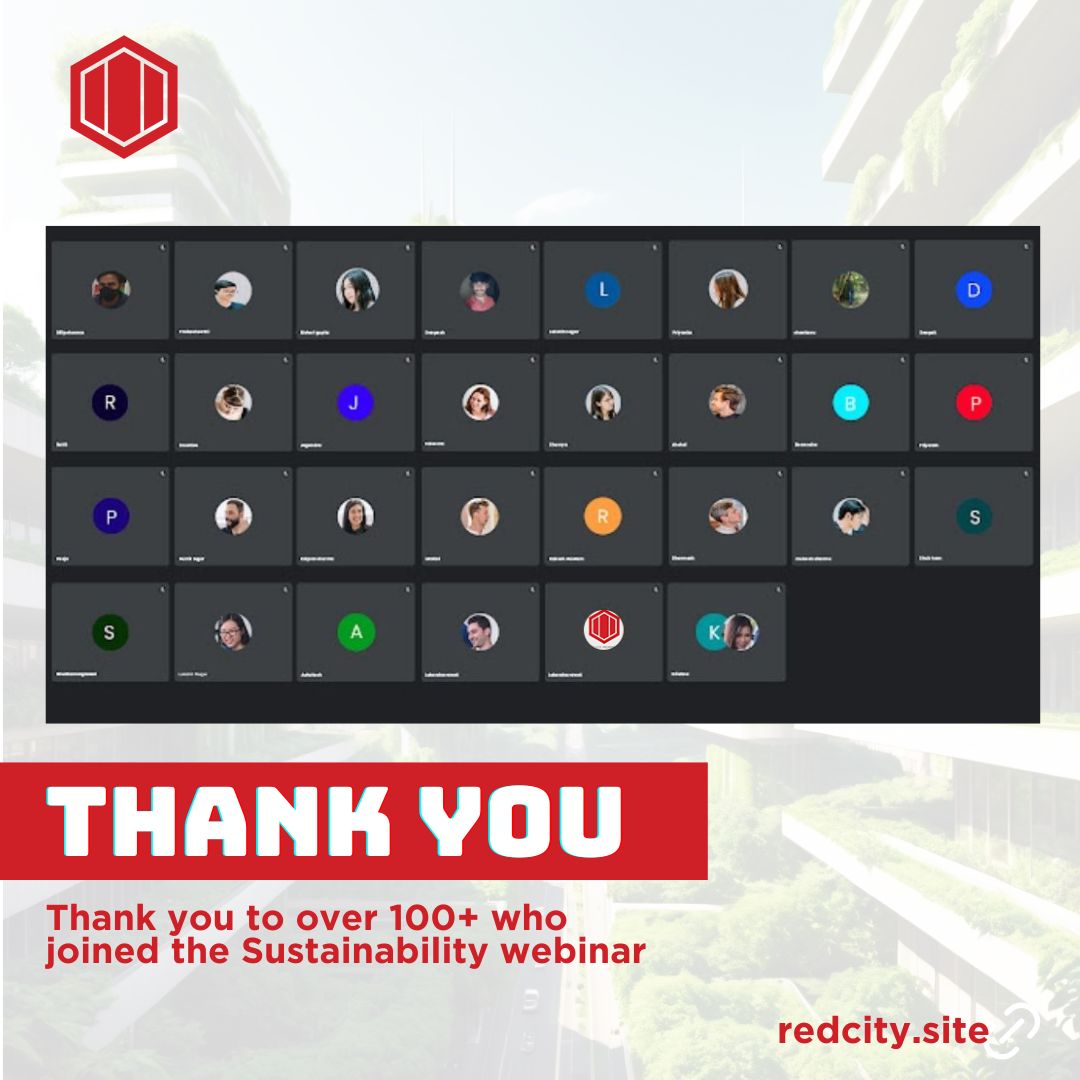Now, more than ever, ESG has become the most important framework for determining a company's level of sustainability and ethicality. As a result, investors, consumers, and other stakeholders increasingly scrutinise companies based on their ESG performance.
Consequently, a high ESG rating not only signifies a commitment to sustainability but also reflects sound management practices and risk mitigation strategies.
For this reason, it is important that companies adopt sustainable practices to not only improve their ESG ratings but to also make positive impacts in society. With that said, here are 5 easy ways to improve your ESG rating:
•Training:
Empower your workforce with the expertise and knowledge needed to integrate sustainability into every aspect of your operations. By offering training programs, like Redcity's sustainability course, you can enlighten them on various eco-friendly practices. This way, you foster a culture of sustainability and can ensure that employees are actively engaged in driving positive change within the organization.
•Repurposing:
Repurposing is a great way to not only reduce your environmental footprint but also cut costs. Whether it's finding innovative ways to reuse waste products, like discarded shipping containers or even sawdust and wood ash, or refurbishing equipment instead of purchasing new ones, repurposing is a good way to improve one's ESG rating. Essentially, exploring opportunities to repurpose materials and resources within your business processes helps drive your sustainability efforts.
•Choose Eco-friendly Solutions:
Another way to improve your ESG rating is by opting for eco-friendly alternatives when procuring supplies or even event materials. Select products and vendors that prioritise sustainable sourcing, production, and packaging practices. For example, when organising or attending events or exhibitions, consider using eco-friendly booths made from recycled materials or renewable resources. By making conscious choices at every stage of your procurement process, you can minimise environmental impact and enhance your ESG performance.
•Upscaling:
The act of upscaling involves transforming waste materials like metal scraps, cans, plastics, etc. into products of greater quality and value. This helps reduce waste while also giving it a newer and better purpose. Oil drums, for example, can be upscaled to create innovative furniture or equipment. Companies like Quadloop are experts in upscaling and have transformed various electronic waste materials into better yet inexpensive quality products for families and businesses in Africa.
https://www.instagram.com/p/C4RSNA9t3JB/?igsh=NTc4MTIwNjQ2YQ==•Sustainable investing and partnerships:
Align your investment strategies with ESG principles by directing capital towards companies and projects with strong ESG credentials. You can consider integrating ESG criteria into your investment decision-making process or partnerships and actively engaging with portfolio companies to drive positive change. By supporting sustainable initiatives, you not only generate financial returns but also contribute to broader societal and environmental goals. Take Google, for example, who, in their efforts to push sustainable causes, invested in an air testing initiative in Uganda.
In summary, by implementing these practical steps, you can enhance your ESG rating, strengthen your resilience, and create long-term value for all stakeholders. Upholding sustainability is both a moral and strategic imperative for building a more resilient and inclusive future. This way, you can also become a part of the top-ranked companies in Redcity's Global 500 ESG ranking.
Just like you, we also prioritise sustainability and eco-friendly practices, and a few of our services include repurposing shipping containers, building eco-friendly booths, training, etc. To check out more of our services, visit here. Request a quote, and begin your sustainability journey with us.
Did you find "5 easy ways to improve your ESG rating" helpful? Comment below.





